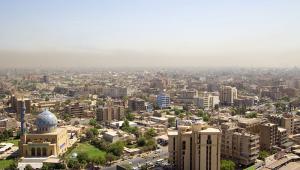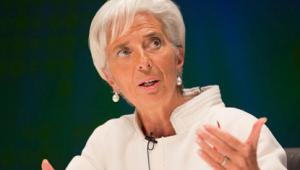The fund said political uncertainty, large-scale bank fraud, unsupportive global conditions and adverse weather have taken a heavy toll on the small, eastern European country. It urged the Moldovan government to undertake “deep reforms” and to prioritise strengthening governance.
In light of that, the fund’s executive board said, “economic growth, at 3.6%, came in surprisingly strong in the first half of 2015 and was largely driven by net exports”.
However, the IMF said, “Executive directors expressed concern about the recent political, economic and financial developments in the country.”
Moldova, one of Europe’s poorest countries, has been locked in political turmoil since some $1bn – an eighth of the country’s GDP – disappeared from the banking system in 2014, transferred through a network of accounts registered in Britain and Hong Kong whose ultimate beneficiaries remain unknown.
The incident triggered huge anti-corruption protests in Moldova, and in October last year lawmakers dismissed the government in a no-confidence vote.
The country’s parliament recently approved a new pro-European government, but yesterday protests continued as thousands of people gathered outside parliament to protest the appointment of Pavel Filip, who protesters say has close links to one of the most powerful businessmen in Moldova, and demanded early elections.
The IMF’s executive directors welcomed the closure of three insolvent banks but expressed regret around delays to address long-identified issues in the banking sector, which leave the potential for further fraud and substantial economic and public costs.
In the wake of the missing $1bn, the country’s currency rapidly depreciated. The IMF noted that inflation remained at 12.5% in September, well above the target rate of between 3.5% and 6.5% but still “notably contained” given the scale of liquidity injections in problem banks.
“The near term outlook is difficult”, the fund said, with the economy expected to contract by 1.75% in 2015, with a marginal recovery of 1.5% in 2016.
“Remittances continue to decline, and a drought has sharply affected agricultural production. Capital expenditure is weak. Financing constraints bind across the economy – credit growth remains negative, external budget support is falling, and yields on short-term government bills have risen from around 10% at end-2015 to over 23%,” the executive board said.
The IMF recommended deep reforms to the financial sector, including a comprehensive review of the health of remaining institutions, improvements in regulatory, supervisory and crisis management frameworks and urgent corrections to long-standing deficiencies in identifying ultimate beneficial ownership of banks.
Prudent macroeconomic policies, fiscal consolidation, constraints to pensions and the wage bill, improved revenue collection and the prioritisation of investment projects financed by concessional lending should also be pursued, the fund said.







